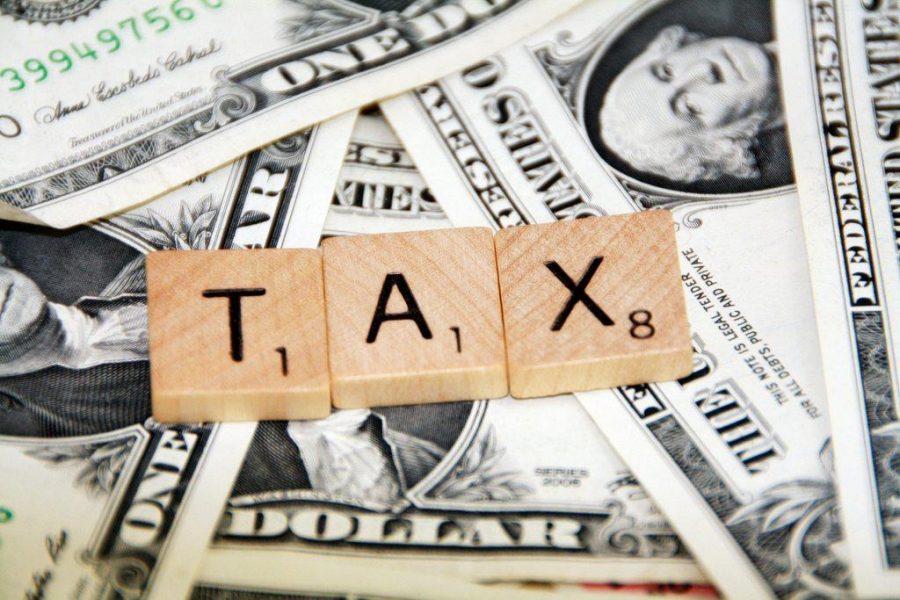Shadley & Soter: Utah Needs to Raise the Estate Tax
September 15, 2021
Utah is one of 33 states without what’s known as a “death” tax. When someone dies in Utah, neither the estate or the inheritors are taxed on that transfer of wealth. Some estates may owe taxes to the federal government, but most do not, because the current estate tax exemption rose to $11.7 million in 2021.
So, every time someone in Utah passes away with less than $11.7 million, 100% of that money goes to their inheritors, with none of it going towards funding state or federal programs. More importantly, individuals who’ve accumulated significant wealth remain incentivized to multiply their wealth, further increasing wealth inequality.
The absence of a death tax benefits the descendants of wealthy individuals, but it does so by rewarding them financially for something outside of their control. In a capitalist society, where individuals purportedly improve their positioning in life through their own merits, receiving an inheritance contradicts those meritocratic values.
Instead, Utah and the United States should explore a progressive income and wealth tax with the highest tax bracket at 100%. Doing so would not only disincentive the wealthy individuals from accumulating more wealth, but it would open up opportunities for people with lower socioeconomic statuses to do some of that work, further decreasing wealth inequality.
Inheritance is Inherently Contradictory to American Values
Marshall Steinbaum, an economics professor at the University of Utah, said, “the main predictor of becoming wealthy is whether your parents are wealthy, which is exactly why inheritance tax is a crucial policy lever for controlling inequality.” Steinbaum is correct, even though this truth is about as anti-capitalistic as it can get.
Capitalism only thrives when supply and demand are functioning properly. Inheritance hinders that function for a variety of reasons. Productivity in relation to inheritance is a prime example of this economic disruption.
Productivity in a capitalistic society equates to profit. That profit is an immediate result of how productive a person is. In this specific scenario, the supply is profit, while the demand is productivity. The profit that comes from productivity entices people to work hard, which results in an economy that thrives. Without productivity, capitalism would not function.
The direct antithesis of economic productivity is inheritance which is the result of luck. That luck perpetuates the division between the rich and the poor at an alarming rate.
A recent study found that the top 1% of America’s wealthiest families will receive, on average, a jaw-dropping $1.7 million in inheritance. Comparatively, the bottom 50% of American families will only receive an average of $9,700 in inheritance which is about 74 times less than the previously mentioned top 1% of the country’s population.
If wealth distribution in America functioned upon the capitalistic infrastructure Republican lawmakers so ardently proclaim it does, “death taxes” would be implemented no matter how large the value of the inheritance.
Similarly to productivity, capitalism was founded on the idea that all citizens start at the same place. But, there are many social barriers our society has implemented to make it nearly impossible to achieve this inherently capitalistic value including race, gender, class etc.
America’s inequality may sprout from inheritance which ensures the classic platitude, “the rich get richer while the poor get poorer.”
Old money, as some call it, is a direct result of inheritance. People who inherit great wealth can afford better education, get better jobs and continue to make more money. Whereas people who inherit little (if anything at all) have to grow their fortune from scratch.
The supply here is scarce, and the demand for it is great. America’s playing field is far from level.
Is a 100% Estate Tax the Solution?
Raising estate taxes to 100% for the top bracket of Americans could very well become a reality, and a more equal, capitalistic one at that. In our conversation, Steinbaum argued that “the optimal tax policy raises zero revenue from the richest people and that’s because we don’t want rich people anymore.”
While noting that his argument could come across as controversial, he continued to say that the prime estate tax would be 100% because then his formerly mentioned ideal has the potential to be realized. “I am advocating here in favor of pre-distributional tax policy, which is, if we make it illegal to be rich, then other people will make more money. And the reason why that’s true is because if the estate tax is that high, then it’s not worth your while to be any richer than that threshold because the government’s going to take everything.”
Steibuam went on: “This world of very high inequality is in my view, very acutely caused by the erosion of progressive taxation. The effective tax rate on very rich people is much, much lower than it used to be when we had much less inequality, and that means that it’s in the interest of rich people to earn more money to become even richer than they already are.”
How a 100% Estate Tax Would Help the Working and Middle Classes
As Steinbaum said, when “it’s not worth someone’s while to earn any more money than a certain amount, that creates a more egalitarian kind of social order where there’s a greater degree of equality between contending forces like workers and executives.”
When a progressive income and wealth tax has a 100% tax at the highest levels, executives essentially decide whether they’d rather have any additional earnings go to their workers or the government.
In the end, Most executives would likely opt to improve the livelihood of their employees in the hopes of reducing turnover, which would create higher incomes for middle-class workers who generally get the short end of the stick.
Steinbaum explained how this scenario would play out. “Let’s say you are an executive at a business, and the workers in the business form a union to ask for higher pay. If there’s 100% income tax or estate tax above the threshold and you’re already at the threshold the boss of that business is going to have less reason to oppose that demand on the part of workers, because if they don’t, the government’s going to get the money.”
Steibaum went on to say that it’s not worth it for the executive “to earn any more money than that and that creates a more egalitarian kind of social order where there’s a greater degree of equality between contending forces like workers and executives.”
So Utah, let’s raise our estate taxes. The benefits it would bring to our economy and our citizens are undeniable.









